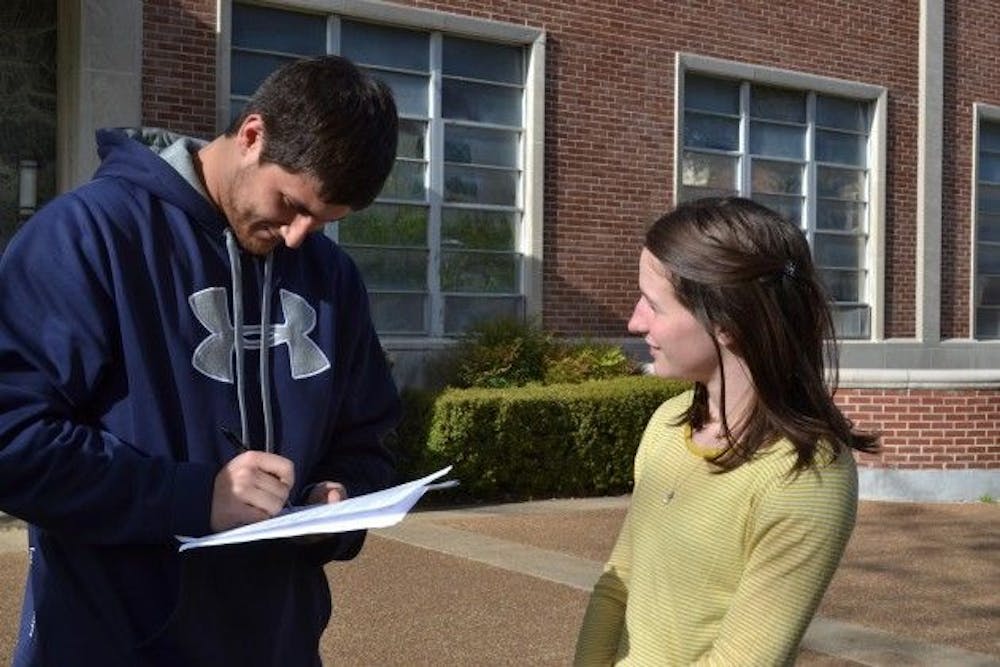Twenty-five billion Styrofoam cups are thrown away in America each year and often sit in landfills for up to 500 years without decomposing, according to the Environmental Protection Agency.
Two students decided to fight that statistic by creating a petition to ban Styrofoam cups at the University of Memphis in hopes to make the campus more environmentally friendly.
Alexandra Webb and Alexandra Stephens, both senior interior design students in the Department of Agriculture, are rallying student support to assist with their efforts in bringing eco-friendly options to campus.
"Currently the two of us are taking a sustainable design class, which is offered in the Department of Architecture here at the university," Webb said. "We study a variety of sustainable practices with one being upcycling."
After individually choosing projects, Webb and Stephens decided to combine their ideas to get rid of Styrofoam and reuse and reduce plastic bottles in landfills.
They see social, economic and environmental benefits that come with switching from Styrofoam to biodegradable products such as Carrie cups, Repurpose and Dixie cups, which all support hot and cold beverages.
Some people do not know that because Styrofoam cups don't decompose, they slowly release chlorofluorocarbons, into the atmosphere. CFCs can last in the atmosphere for up to 50 years, which eats away at the protective ozone layer, according to the EPA.
Webb and Stephens propose that if the University made an investment in compostable cups and composting bins, it would support the TIGUrS Garden composting efforts. The University could also print sustainable facts and ways to recycle on future cups to bring awareness to students and increase participation.
Currently, the University Food Services has a contract with ARAMARK. As stated on their website, the company seeks responsibility in addressing the issues that are most concerning to universities, striving to align with the goals of their clients.
According to Webb, "trying to move towards a more sustainable, compostable product is a reasonable request."
Webb said that by generating more compost for the University, an opportunity might be to sell to local vendors, generating profit while using the excess on the garden locations such as the Recycling Zone. Additionally, the garden could provide free composting for the community.
The two interior design students said that they have always been passionate about sustainability and look to continue gaining knowledge with sustainable practices.
"We became even more passionate about the project when we decided to work together and we constantly bounced ideas off of one another," Webb said.




